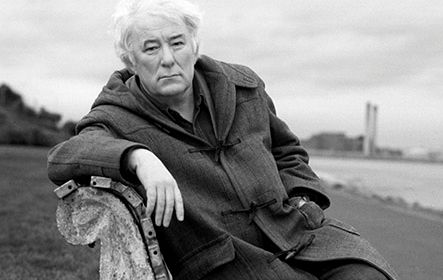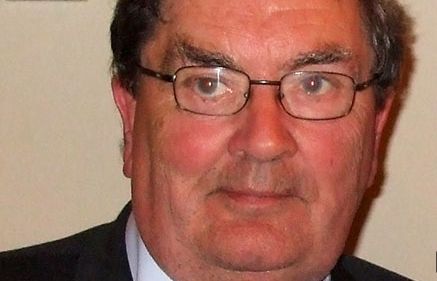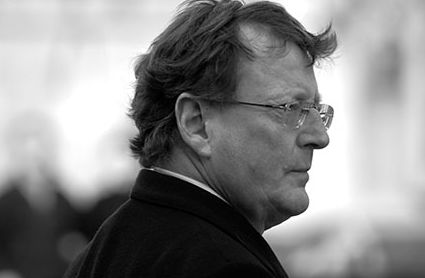
News 24. 1. 2018
Ireland’s greatest and brightest – the nation’s Nobel laureates
William Butler Yeats – received his Nobel Prize for literature in 1923.Wikimedia
Editor’s note: On this day (Nov 12) in 1925 Irish poet W. B. Yeats was awarded a Nobel Prize. The committee described his work as „inspired poetry, which in a highly artistic form gives expression to the spirit of a whole nation.“ A sentiment which still rings through today.
Nobel Prizes are awarded annually to individuals and organizations who make outstanding contributions in the fields of chemistry, physics, economics, literature, peace, and physiology or medicine. The island of Ireland, as ever punching above its weight, has ten distinguished parties named among the laureates.
Here are the Irish Nobel laureates, from south and north of the border:
Samuel Beckett

Samuel Beckett.
Originally from Foxrock, Dublin, the avant-garde novelist, playwright, director, and poet, lived in Paris for most of his adult life. His works, in both English and French, offer a bleak, tragicomic outlook on human nature, often coupled with black comedy and gallows humor. Beckett is widely regarded as one of the most influential writers of the 20th century and one of the last modernists.
He was awarded the 1969 Nobel Prize in Literature „for his writing, which—in new forms for the novel and drama—in the destitution of modern man acquires its elevation.“
Seamus Heaney

Seamus Heaney, born in Castledawson, County Derry, was awarded the Nobel Prize in Literature in 1995.
A poet, playwright, translator and lecturer, Heaney, who passed away in 2013, was a literary rock star. His nickname was “Famous Seamus.”
In the 1960s Heaney became a lecturer in Belfast, where he had been a student at Queens University. He was a professor at Harvard from 1981 to 1997and the Poet in Residence from 1988 to 2006. From 1989 to 1994 he was also the Professor of Poetry at Oxford and in 1996 he was made a Commandeur de l’Ordre des Arts et Lettres.
John Hume

John Hume and David Trimble were co-recipients of the Nobel Peace Prize in 1998 due to their efforts in the 1998 Belfast Agreement (Good Friday Agreement).
A former politician from Derry, Hume was a founding member of the Social Democratic and Labour Party. He led the party from 1979 to 2001 and served as a Member of the European Parliament and a Member of Parliament for Foyle, as well as a member of the Northern Ireland Assembly.
Hume is regarded as one of the most important figures in Ireland’s recent political history and one of the architects of the Northern Ireland peace process.
He is the only person to have received the Gandhi Peace Prize, the Martin Luther King Award and the Nobel Prize all for his work in bringing about peace. He was also voted the greatest person in Irish history by a recently RTE poll of the public.
Seán MacBride

Once an Irish government minister, a prominent international politician and a former Chief of Staff of the Irish Republican Army, McBride founded or participated in many international organizations of the 20th century. These included the United Nations, the Council of Europe and Amnesty International.
He received the Nobel Peace Prize in 1974, the Lenin Peace Prize for 1975 to 1976, and the UNESCO Silver Medal for Service in 1980.
Mairead Maguire

Magure and Betty Williams were co-recipients of the Nobel Peace Prize in 1976.
Mairead Maguire, from Belfast, is a peace activist and co-founder with Betty Williams and Ciaran McKeown of the Community for Peace People, an organization dedicated to encouraging a peaceful resolution of the Troubles in Northern Ireland.
George Bernard Shaw

Dubliner George Bernard Shaw, the playwright, was also the co-founder of the London School of Economics.
He was the only person to have been awarded a Nobel Prize in Literature, in 1925, and an Academy Award, in 1938, for his contributions to literature and for his work on the film “Pygmalion” (an adaptation of his play of the same name), respectively. He turned down all other awards and honors, including a knighthood.
Shaw made his money writing music and literary criticism but his main talent was drama. He wrote more than 60 plays as well as essays, novels, and short stories.
David Trimble

Born in Bangor, County Down, David Trimble was the First Minister of Northern Ireland from 1998 to 2002 and the Leader of the Ulster Unionist Party from 1995 to 2005.
He was instrumental in the negotiations that led to the Belfast Agreement in 1998 and was awarded the Nobel Peace Prize that year for his efforts, alongside John Hume.
Ernest Walton
Ernest Walton was an Irish physicist and Nobel laureate for his work with John Cockcroft and their „atom-smashing“ experiments done at Cambridge University in the early 1930s. He became the first person in history to artificially split the atom, thus ushering in the nuclear age.
Betty Williams

Betty Williams shared a Nobel Peace Prize with her fellow Belfast woman Mairead Maguire, as co-founder of the Community for Peace People, an organization dedicated to promoting a peaceful resolution to The Troubles in Northern Ireland.
She heads up the Global Children’s Foundation and is the President of the World Centre of Compassion for Children International. She is also the Chair of Institute for Asian Democracy in Washington D.C. and a distinguished visiting professor at Nova Southeastern University.
In 2006 Williams was one of the founders of the Nobel Women’s Initiative along with sister Nobel Peace Laureates – Mairead Corrigan Maguire, Shirin Ebadi, Wangari Maathai, Jody Williams and Rigoberta Menchu Tum. The group aims to bring together their experiences in a united effort for peace with justice and equality.
William Butler Yeats

William Butler Yeats, born in Dublin, was an Irish poet and one of the foremost figures of 20th century literature.
In 1923 he became the first Irishman to be honored with the Nobel Prize. The committee described his work as „inspired poetry, which in a highly artistic form gives expression to the spirit of a whole nation.“
He was a driving force behind the Irish Literary Revival and was a co-founder of the Abbey Theatre, Ireland’s national theater.
William Butler Yeats – received his Nobel Prize for literature in 1923.Wikimedia
IrishCentral Staff @IrishCentral
Václav Bernard


